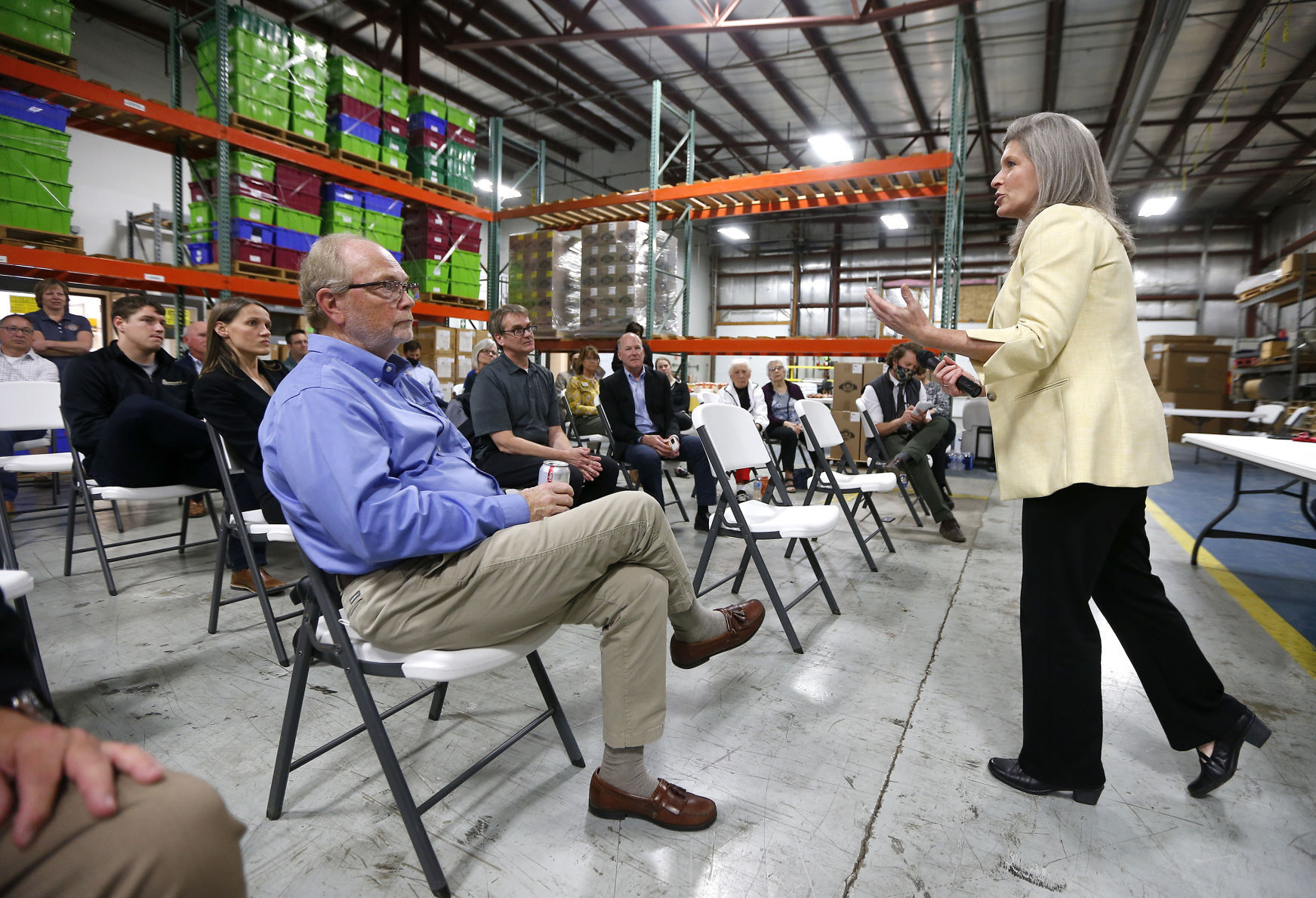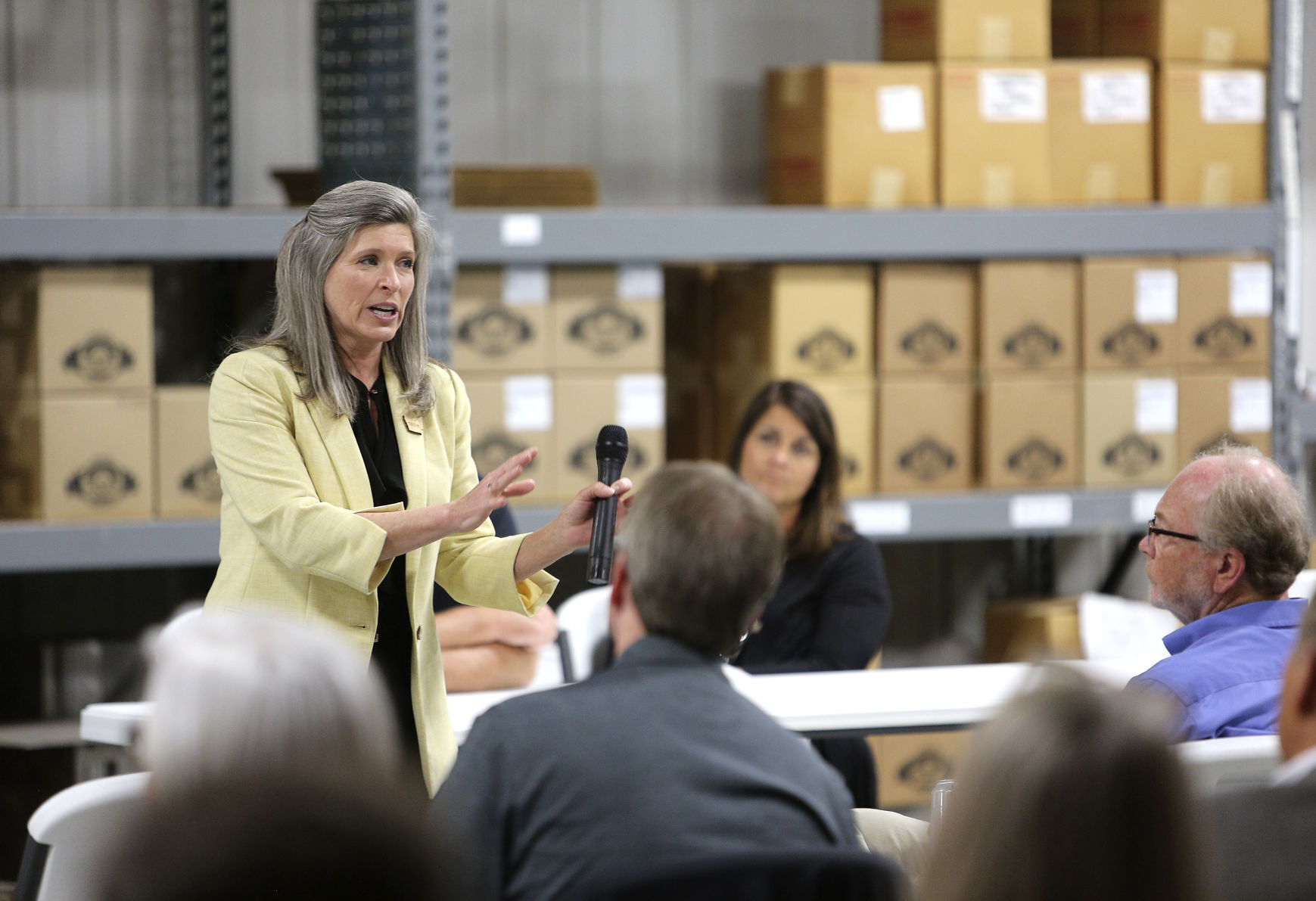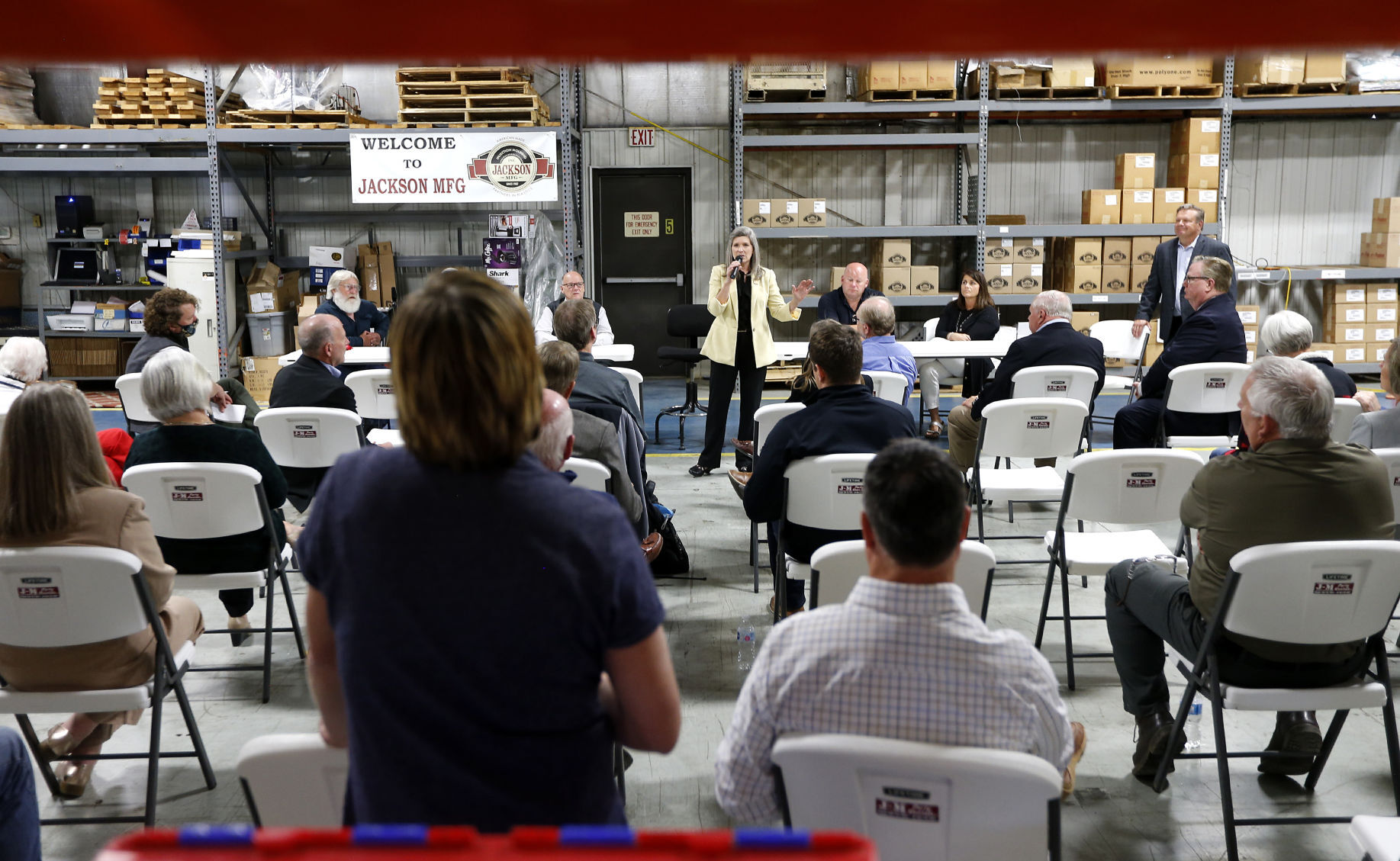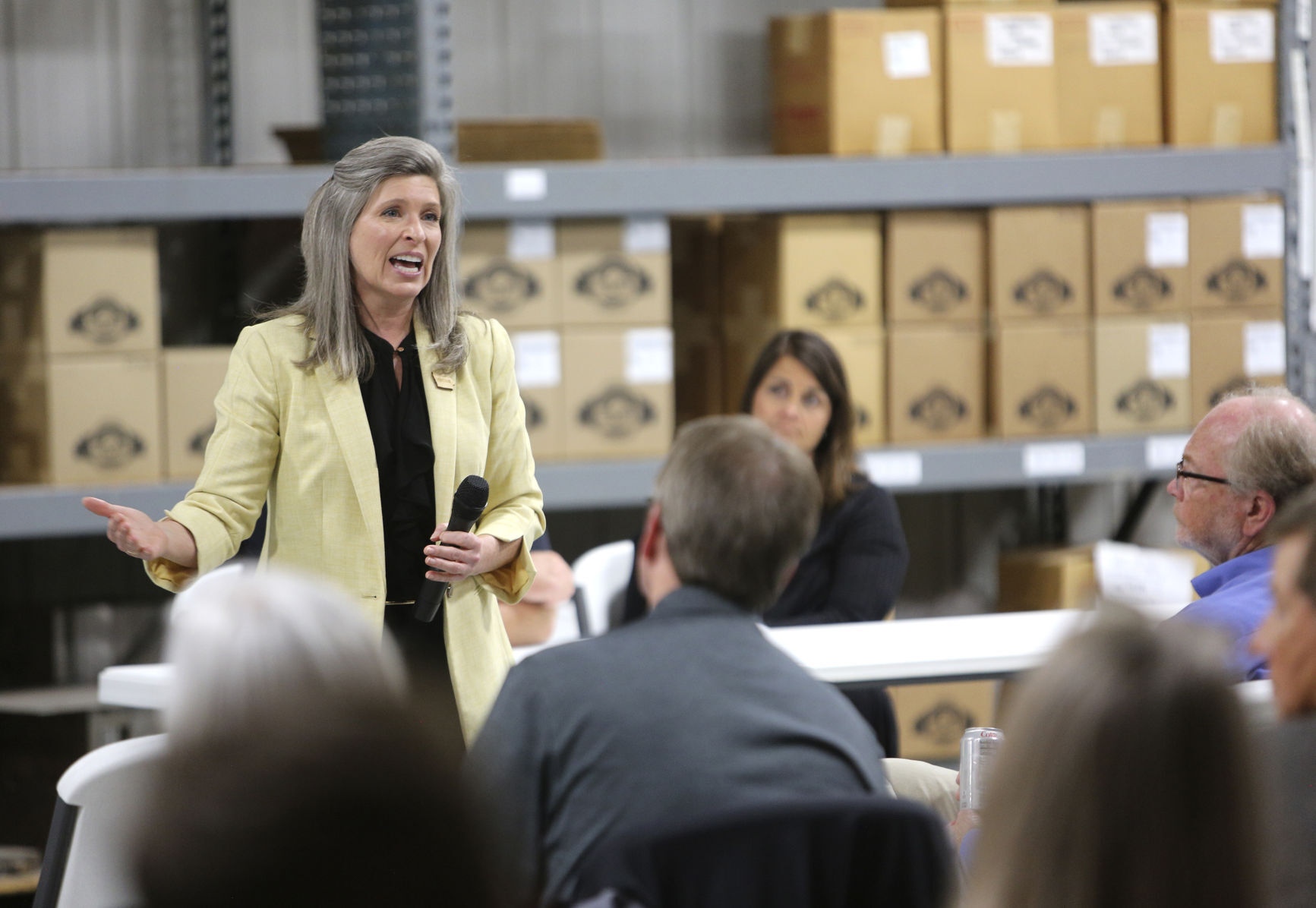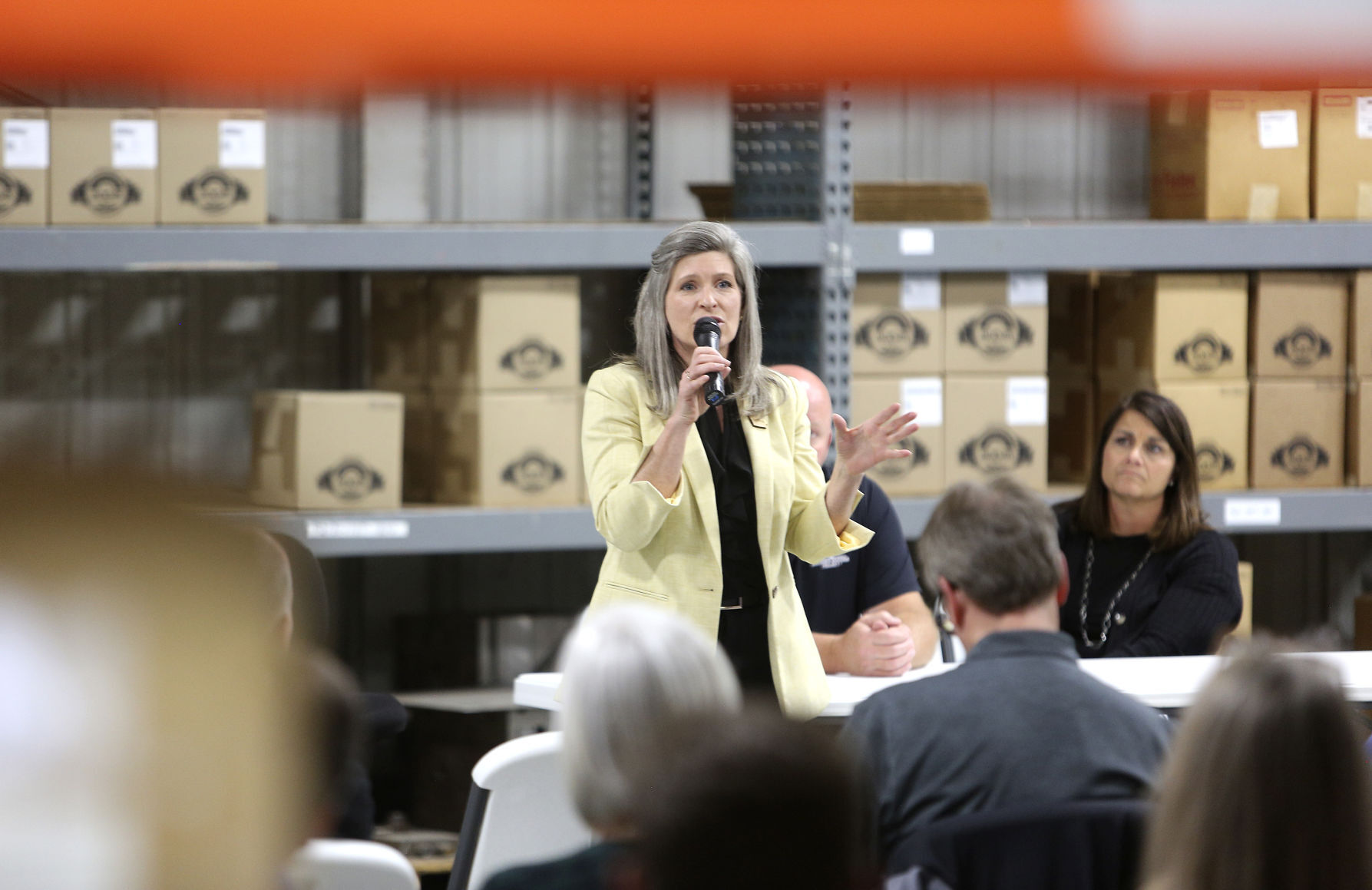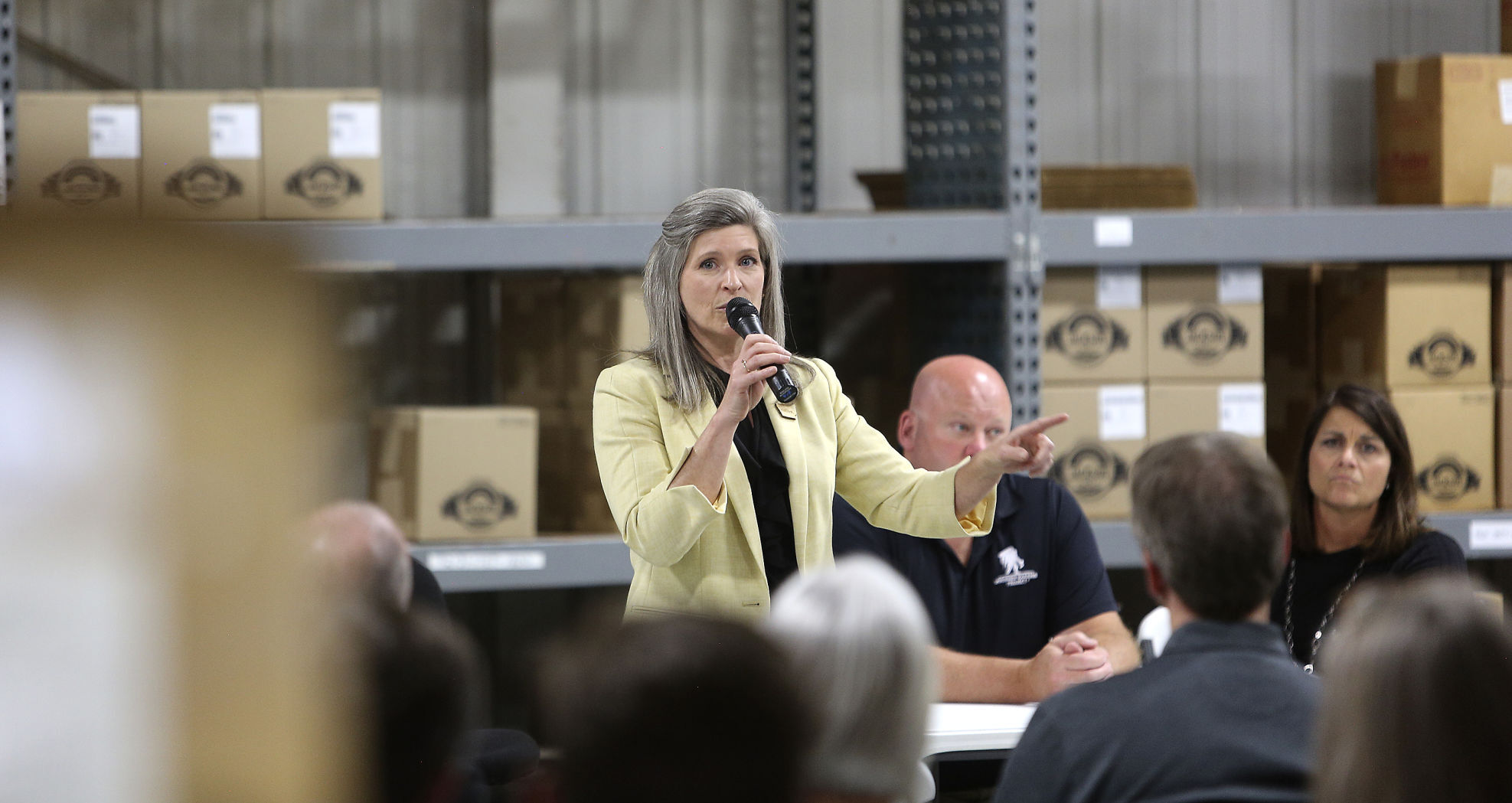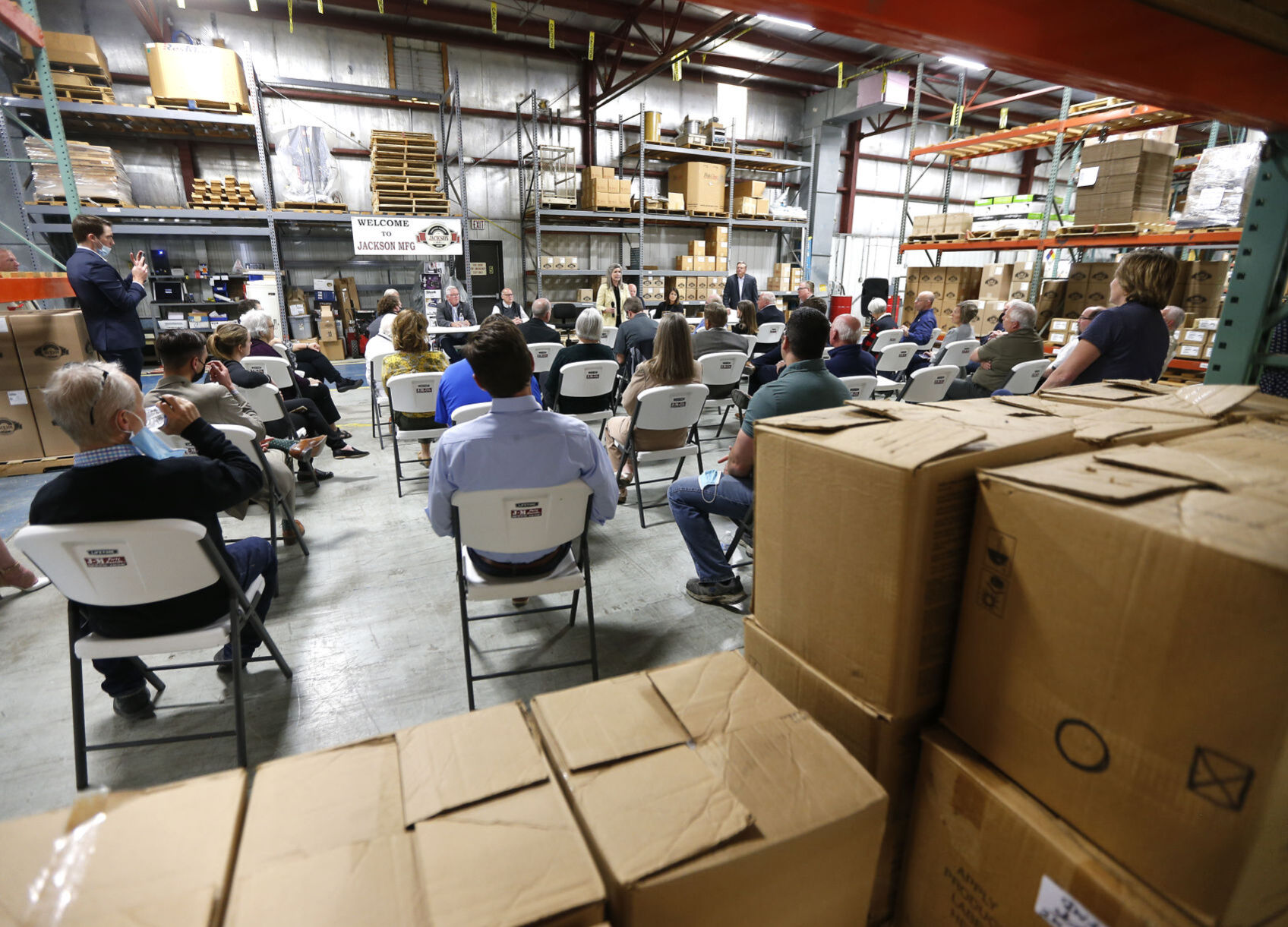MAQUOKETA, Iowa — U.S. Sen. Joni Ernst, R-Iowa, blamed unemployment expansion and other issues for the labor shortages that plagued some of the Jackson County business leaders who attended an event Wednesday.
Ernst spent time in eastern Iowa as part of her 99-county tour of the state. This stretch included stops at both Jackson Manufacturing in Maquoketa and Hills and Dales in Dubuque.
In Maquoketa, the senator spoke to a group of 30 business leaders and elected officials during a question-and-answer session that focused largely on labor issues.
In response to questions about the national labor shortage, Ernst first pointed to the expansion of unemployment benefits included in Congress’ COVID-19 pandemic relief bills.
These expansions were designed to protect the swaths of workers who suddenly found themselves unemployed due to COVID-19 shutdowns. But many employers — including some at the event in Maquoketa — have said they are having trouble filling vacancies because of the programs.
“It has been hard to get people to work,” Ernst said. “As long as that is in place and a person is making more through expanded unemployment, they’re not likely to leave that situation and go to work in whatever industry. … If you’re able to get back to work, you need to get back to work.”
Still, Ernst said that, in some ways, “you can’t fault them.”
“If they are doing better for their family by not going back to work, it’s really hard to choose to go back and make less,” she said. “We have put our American citizens in a very difficult situation.”
After the question-and-answer session and a tour, Ernst acknowledged to the Telegraph Herald that the labor shortage in Iowa began long before COVID-19 arrived.
“In states like Iowa, we’re not necessarily growing our population, so we need to bring more people into the state, whether they’re coming from other states or we’re utilizing the visa program,” she said. “We’re trying to push some efforts to monetize the visa programs. Here in Iowa, there is very little flexibility in some of the ag visas, even some of the business visas. It’s just not working for Iowa.”
Ernst is also the Republican lead on a bill that would allow courts to seal low-level crime records of offenders from potential employers running background checks.
“As they’re coming out of prison, as they’re applying for positions, those low-level, nonviolent crimes are sealed,” she said. “It gives them greater opportunity to access employment.”
Ernst is also the Republican lead on a “ban the box” bill with U.S. Sen. Cory Booker, D-N.J., which would prohibit the federal government from asking if an applicant is a felon on job applications.
These efforts could re-engage members of communities who have dropped out of the labor force due to past convictions, which also often leads to recidivism, she said.
Among the attendees was Tom Wolfe, of NM Transfer Co. He highlighted problems, specifically, in finding drivers with commercial driver’s licenses, leaving dozens of vacancies in his fleet and costs high for shipping in general.
“Our ability to deliver overnight freight depends on our ability to find truck drivers,” he said, promoting the Drive Safe Act.
That bill would drop the minimum age for commercial driver’s licenses from 21 to 18 and would include safety measures such as requiring hundreds of hours of passenger seat instruction with experienced drivers.
“We want to open up that opportunity, allowing some of these younger folks to start engaging in the trucking industry earlier,” said Ernst, a co-sponsor of the bill. “In the Midwest, a lot of our young people are driving early anyway. I was driving at 14. Developing those employees is very important.”
She said there currently is pushback from lawmakers more concerned about the safety of having younger drivers operating such large trucks.
Ernst also took the opportunity to target President Joe Biden’s $2 trillion American Jobs Plan infrastructure proposal.
“There is more in the Biden proposal for electric vehicles than for your county roads and bridges,” she said. “We really need to focus on what we typically think of as infrastructure: roads, bridges, waterways, even pulling in broadband.”
Ernst instead offered up a $568 billion infrastructure omnibus bill that unanimously passed the Senate Environment and Public Works Committee, of which she is a member, in 2020.
Iowa Rep. Ross Wilburn, D-Ames, on behalf of the Iowa Democratic Party, responded via email to an inquiry from the Telegraph Herald about Ernst’s event. He credited the impact of the expanded unemployment.
“The relief packages have helped folks keep the lights on and keep food on the table during a global pandemic,” he wrote. “I know Iowans value hard work and giving back to their communities. It’s a shame Joni Ernst has forgotten that.”
Wilburn also argued in his email that the U.S. will need to do more than just recover in the pandemic’s wake and that the American Jobs Plan is a way to “build back better.”


